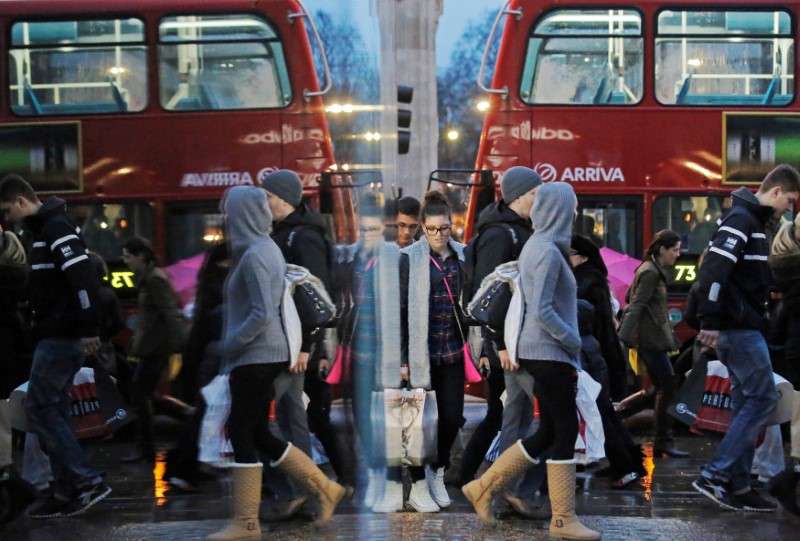LONDON (Reuters) - Prices in British shops fell more slowly last month than in August, despite a record drop in the cost of food, but there was little sign of price rises on the back of sterling's sharp fall since June's Brexit vote.
The British Retail Consortium said shop prices overall in September were 1.8 percent lower than a year earlier, compared with a 2.0 percent decline in August.
Food prices declined by 1.3 percent compared with September last year, the biggest fall since the survey started nearly 10 years ago, despite global commodity prices recording their sharpest rise since September 2011.
"Fierce competition is playing a vital role in keeping prices down," the BRC said. "Despite rising global food prices and the devaluation of the exchange rate, shop prices are still showing little sign of nearing inflationary territory."
But with sterling hitting a 31-year low against the dollar on Tuesday as it extended losses made after Britain voted to leave the EU, the BRC expects prices to start to rise soon.
"The low levels of shop price deflation we have witnessed over the last few years will not be around for much longer, and we expect shop price deflation to be closer to zero at the turn of the year," the BRC said.

Britain's broader official measure of inflation, the consumer prices index, rose 0.6 percent year-on-year in August, and many economists expect it to overshoot its 2 percent target next year, bearing down on consumer spending.